The California launch of Seth Rogen’s cannabis and home goods line, Houseplant, was so popular the website crashed within hours.
Rogen and his team have stated how important it is that Houseplant, 10 years in the making, provides people not only with quality cannabis products, but also uses its platform to promote a more diverse and equitable industry for communities devastated by the War on Drugs.
“Social impact has been part of the DNA of the business since the start,” Melissa Greenberg, Houseplant’s Chief Consumer Officer, told Forbes. “The founders recognized that they’ve been celebrated over the past 20 years for their cannabis consumption while others, predominantly people of color, have been criminalized for it...the Houseplant brand recognizes the responsibility they have to help right those wrongs.”
It’s no surprise Rogen, whose films frequently feature cannabis use, would create such a brand, but the emphasis on industry equity, mentorship and restorative justice is compelling. Plenty of celebrities have entered the cannabis/hemp sphere, from Snoop Dogg and Martha Stewart to Lil Wayne to Bella Thorne, and Rogen’s launch demonstrates a growing facet of industry operators who recognize that they must be the change they want to see in the world. A global pandemic, a recession, and long-brewing social justice movement have spurred change in both cannabis operators and consumers.
“It’s about time,” says Kristi Palmer, co-founder of Kiva Confections, who witnessed California’s chaotic transition into the adult-use market firsthand. As a cannabis CEO who has committed to multiple philanthropic causes, including fundraising for LGBT organizations and mentoring equity applicants throughout California, Palmer believes “it’s impossible to stay on the sidelines and it’s not enough to just make a good product. People are attracted to brands that adhere to their values. ”
Brand owners, dispensary workers, and executives shared their motives and experience with The Bluntness about adopting principles of conscious consumerism, AKA putting their money where their ethics are and giving more to their communities than just good weed.
Social Equity Has a Long Way to Go
Committing to social equity and diversity principles seemed like a foolproof plan towards rectifying the impact of the War on Drugs in an industry with a high cost of entry. Since Oakland’s inaugural foray into lowering costs and barriers for cannabis license applicants just three years ago, cities and counties across multiple states, even where cannabis was already legal, have followed suit. The approaches and outcomes have varied greatly.
To offset the disproportionate amount of wealthy, white license holders, some states, including Massachusetts, have decided to prioritize applicants who show commitment to empowering vulnerable communities.
Others like Ohio have attempted to commit a set percentage of the state’s licenses to BIPOC applicants, though a state judge later struck it down.
Oklahoma currently has no explicit equity provisions for cannabis, but their medical cannabis industry has relatively lower costs to entry than other states, and no limit on licenses.
But advocates, industry leaders, and equity applicants themselves are vocal that programs alone aren’t enough to bridge the racial and socioeconomic barriers to entry, or the lack of guidance once the license has been granted.
A July 2020 series by MJBizDaily details failings of equity programs across the country, from corruption in California to short-sighted support in Michigan.
Having worked with equity applicants before, Palmer recognizes the programs are flawed, but they represent the first steps of progress. “That program wasn’t particularly popular in the beginning, and I'm not sure it’s working as intended, but it's important to have that conversation.”
Elizabeth Ashford of Eaze says often the biggest obstacles equity applicants face are the lack of long-term mentorship and hands-on business training for an industry they have few connections to. Unfortunately, many social equity license holders are often coerced into predatory business partnerships with investors.
Bigger, established brands with the resources and acumen to succeed, therefore, need to take a nurturing approach of “sustained economic engagement” to make up for the lacking infrastructure in local governments. Per Ashford, “it's not a problem you can throw money at and walk away from. There's a growing awareness of how inequitable companies are.”
Rather than wait for the support from local governments, which are often marred by bureaucracy, equity applicants may find more immediate and thoughtful support from their fellow green entrepreneurs. Eaze’s Momentum “business accelerator” program, now in its second year, not only provides grants to emerging equity-owned brands, but also consistent mentoring and access to marketing teams, investors, and a spot on Eaze’s online menu to carry their companies into the future.
Honoring the Industry's Pre-legal History
In a still-emerging adult-use industry led predominantly by white male venture capitalists, it’s easy to forget social justice and political movements were the foundation of this community, stemming from the fight to legalize medical cannabis.
Despite data indicating year-by-year decline, cannabis arrests (mostly for possession) still outnumber violent crimes, per NORML’s analysis of FBI data. Those arrested and convicted are also still predominantly Black and Brown.
Matt Janz, marketing director of The Source+ Dispensary in Nevada, worked in the state’s legacy market making edibles for cancer patients. He says the current industry owes a debt to those who risked their lives to provide cannabis for their communities.
“The entire prelegal movement created the market that legal orgs are able to take advantage of,” he says. “It's amazing that we’ve seen cannabis move from illegal to essential in just a decade. That doesn't mean the wrongs for the War on Drugs have been made right. A lot of people who have now gotten into the industry weren't part of that.”
While the Biden administration has received backlash recently for firing White House staff based on past cannabis use, Congress still has opportunities to pass legislation to address justice reform within cannabis policy more cohesively than passing the States Act or MORE Act individually.
Among other things, the States Act would empower States to reschedule cannabis on their terms, while the MORE Act of 2020 would remove cannabis from Schedule I status at the federal level.
“Equity issues may be the means by which legalization can happen,” analyst Jaret Seiberg told Bloomberg in January. “Instead of haggling over the current legislative proposals,” Seiberg sees the current Democratic administration as more receptive to “a broader social justice measure that includes police reform and civil rights measures” rather than bills centered on cannabis.
A recent interview with Vice President Harris implies cannabis isn’t high on the administration’s priorities for now, which leaves the impetus for an equitable future largely with the same communities formed in the clandestine and medical days.
The Pandemic Has Reframed How We Consume
The current sociopolitical climate has also called for intense reflection and reconsideration of our tastes and values both as individuals and as a society; “cancel culture” looms as a real threat over brands and businesses already struggling with the economic crisis.
This past year has impacted how consumers spend their dollars, from books to mutual aid funds to the cannabis brands they choose to support. Consumers want to engage with brands that share their values, and through that loyalty can subsequently be influenced by those brands and the missions they support.
Nidhi Lucky Handa, CEO of Leune, says that after an intimate year of remote meetings, everyone on her team has gotten closer, and has more openly shared their values, morals and ethics. “We need to put light on it, not just in cannabis, but in commerce; consumers like values. That didn't used to be such a big truth.”
This transparency has carried over into Leune’s branding and mission. Instead of one-time donations, Leune and Handa have produced a fundraising product SKU, a disposable vaporizer called Piña Daydream. They’re also partnering with groups like the antiracist Floret Coalition to distribute mutual aid and producing educational and empathy-driven content for the cannabis policy reform nonprofit Last Prisoner Project.
Other efforts underway to include consumers in equity and reform are seeing progress. Ashford is encouraged by the growth of Eaze’s equity menu, which exclusively features products by equity-owned brands; they generated over $2.6 million in revenue last year. “2020 shows there's a really strong consumer desire for these brands,” she says, but these figures represent less than 1 percent of California’s cannabis sales.
As more states like New York and New Mexico legalize adult-use cannabis this year, it’s crucial to implement social equity initiatives as early as possible to prevent repeating the same mistakes. Despite cannabis’s thousands of years on this earth, its medical and adult-use infrastructure have only existed on paper for a generation, a select few hands who have the economic means for compliant, legal entry. Work remains to be done, but it will go faster as more industry stakeholders learn how to collaborate for the greater good.
“It’s daunting, but we are such a young industry,” says Handa. “If enough of us stick around, not just in this moment, really good things will happen. We can do it.”
Need a little more Bluntness in your life? Check our YouTube page!















 Hall of Flowers Toronto 2023
Hall of Flowers Toronto 2023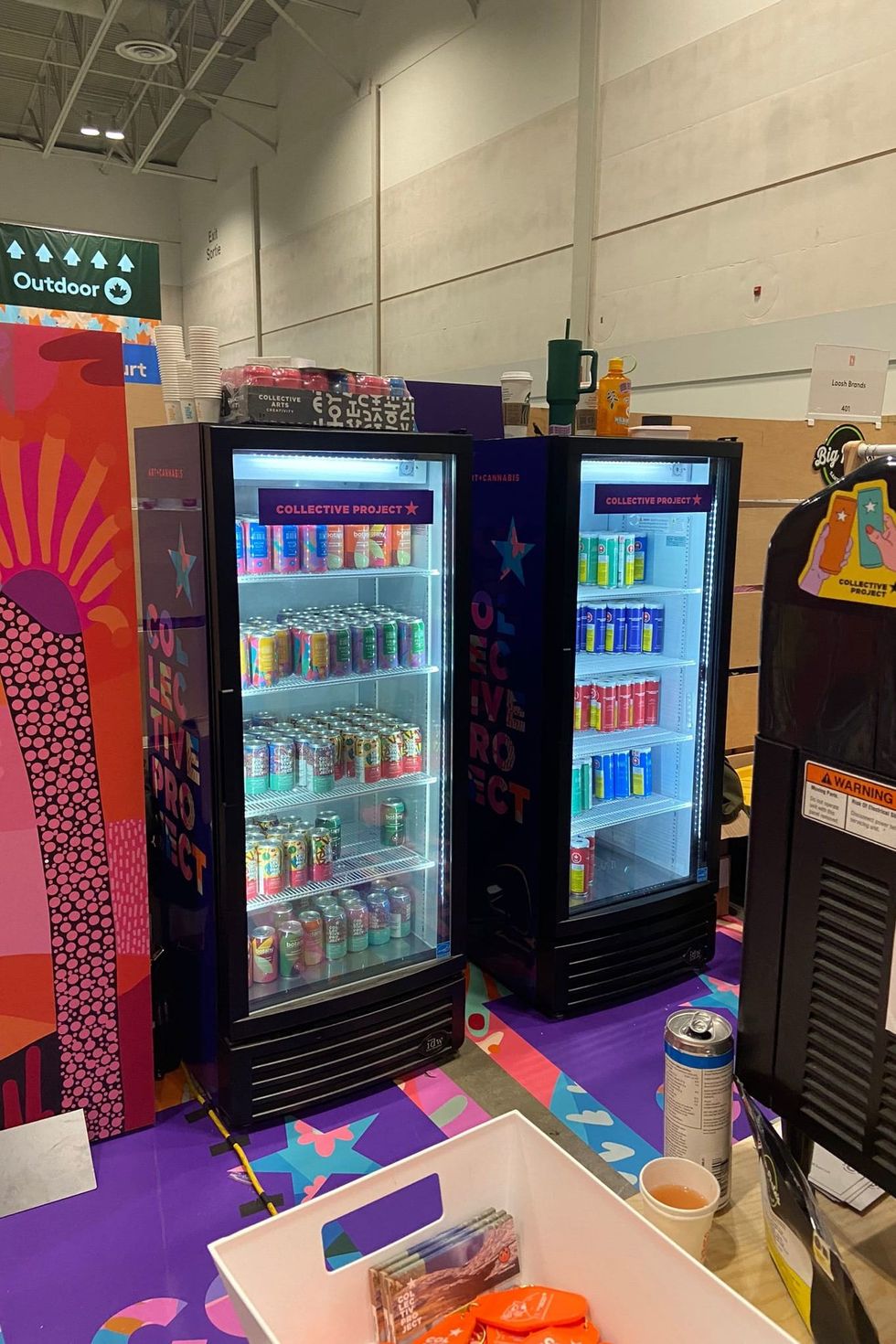 Hall of Flowers Toronto 2023 - Collective Project Booth
Hall of Flowers Toronto 2023 - Collective Project Booth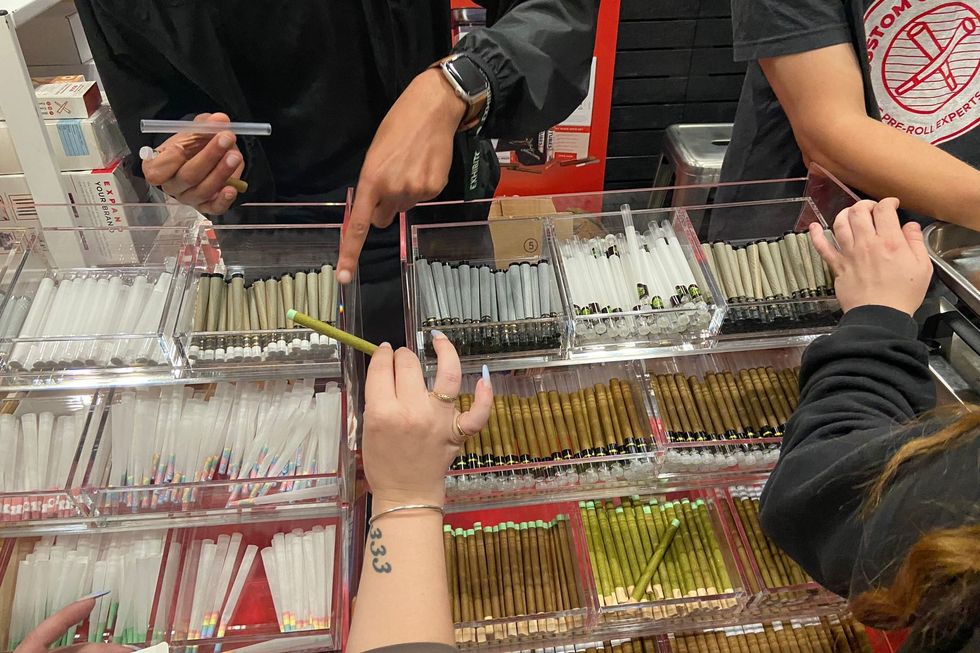 Hall of Flowers Toronto
Hall of Flowers Toronto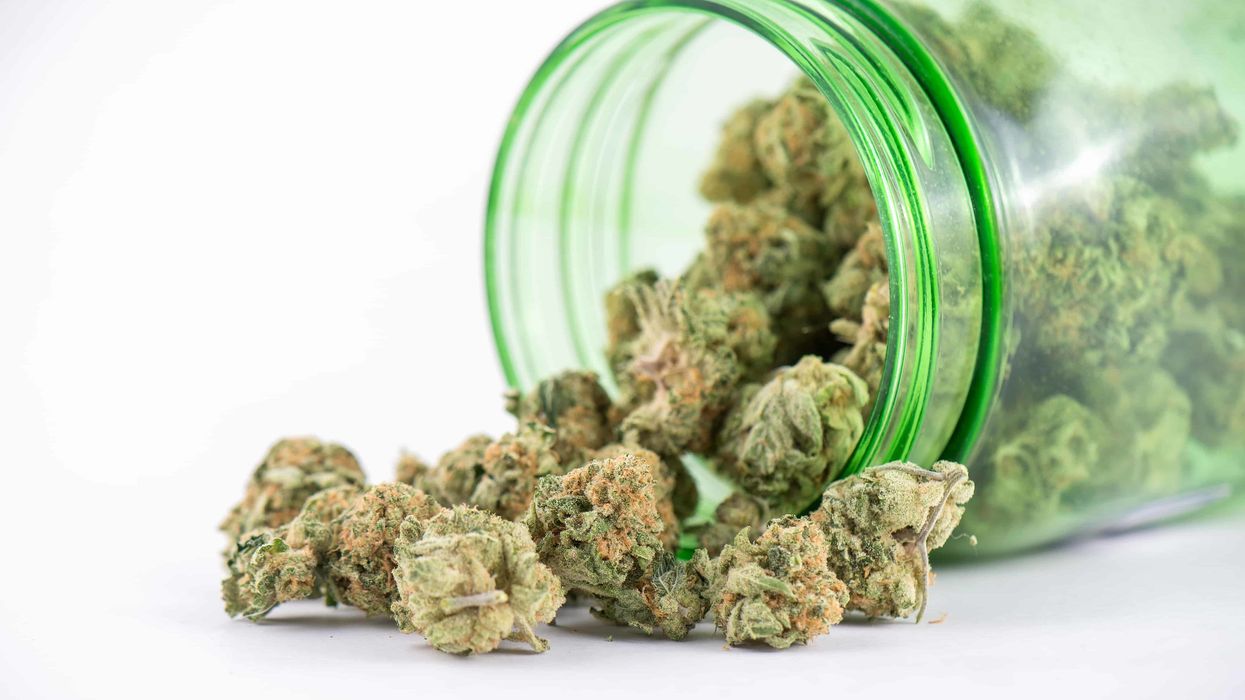
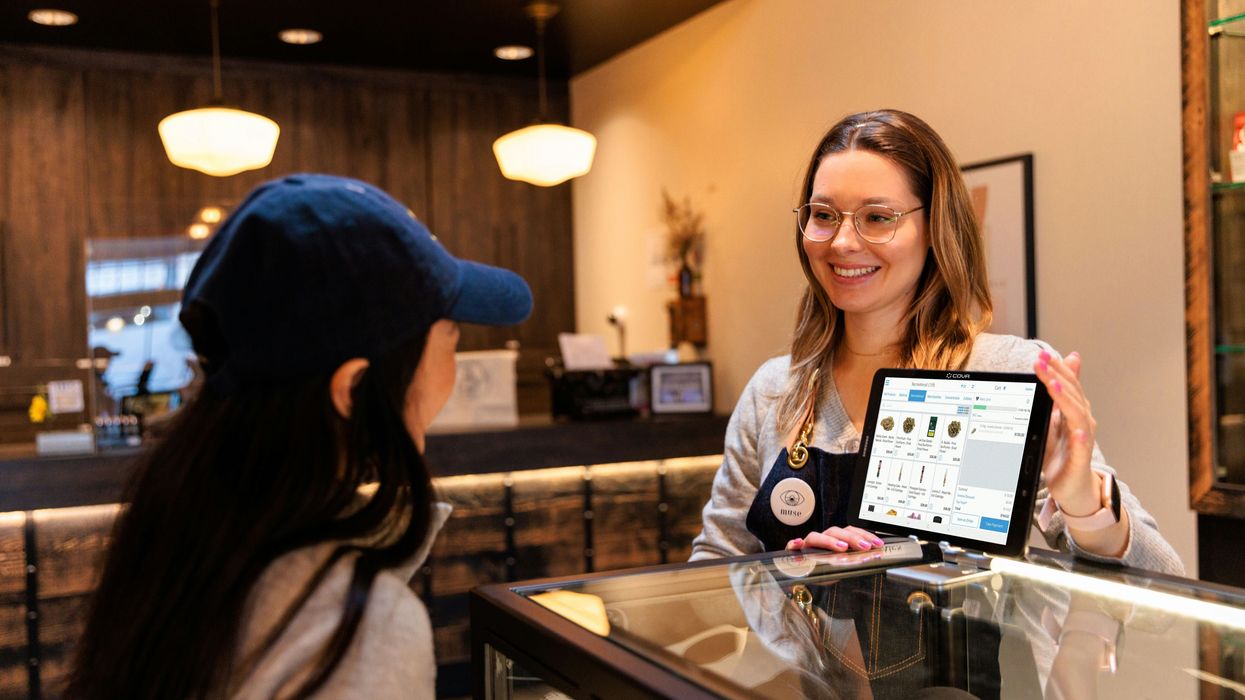
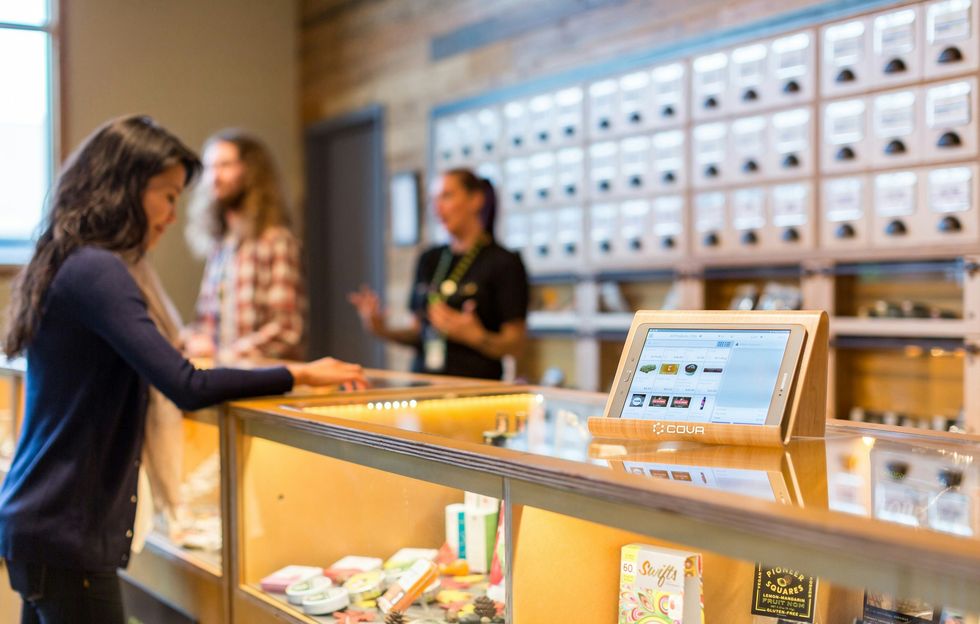 How to Become a Budtender: Complete Career Guide & Salary Information - The Bluntness Photo by
How to Become a Budtender: Complete Career Guide & Salary Information - The Bluntness Photo by  How to Become a Budtender: Complete Career Guide & Salary Information - The Bluntness Photo by
How to Become a Budtender: Complete Career Guide & Salary Information - The Bluntness Photo by